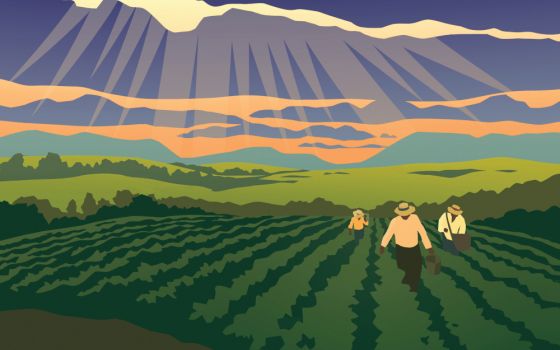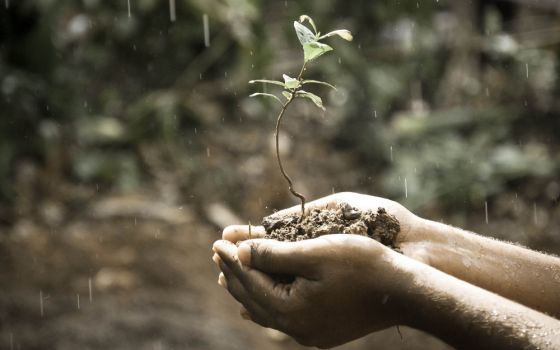
(Wikimedia Commons/Google Cultural Institute)
PAUSE
REFLECT
"There was a rich man who dressed in purple garments and fine linen
and dined sumptuously each day.
And lying at his door was a poor man named Lazarus, covered with sores,
who would gladly have eaten his fill of the scraps
that fell from the rich man’s table." Luke 16:19-21
"Scientists have warned that we’ll need to slim down agriculture’s climate impact in the years ahead if we want to get global warming under control, particularly as the world’s population keeps growing... experts have also argued that it would make a big difference if the world’s heaviest meat eaters scaled back even moderately, helping to free up land to feed everyone else." – "Your Questions About Food and Climate Change, Answered," New York Times.
The "Western-diet" enjoyed by many people in the United States and Europe is one of the most carbon intensive because of the high rates of meat consumption.
A few facts from the article quoted above:
-
People who eat meat heavy diets, especially people in the United States and Europe, could reduce their personal carbon footprint by up to ⅓ simply by switching to a vegetarian diet.
-
Consuming less red meat and dairy will typically have the biggest impact for most people in wealthy countries.
-
If the average American replaced a third of the beef he or she eats with pork, poultry or legumes, his or her food-related emissions would still fall by around 13 percent.
Realistically, we will need to reduce our collective meat consumption in the next 40 years to ensure that we can feed our growing global population without increasing carbon emissions.
In light of this information and today’s scriptures, will we hear Lazarus’ call to dine simply for the benefit of our neighbors and future generations?
FAST
Skim The New York Times article, “Your Questions About Food and Climate Change, Answered” (it is the clearest article on climate change and food that I’ve ever read), and take the quiz “How Does Your Diet Contribute to Climate Change”. Make a commitment to alter one food choice in your diet to lower your dietary carbon emissions.
Examples:
-
Try a plant-based meat alternative. They aren’t always a healthier option, but they are gentler on the earth.
-
Use the Mercy Meatless Mondays program from the Sisters of Mercy of the Americas to choose alternatives to meat on Mondays and Fridays throughout Lent.
-
Fast from meat AND dairy on Fridays throughout Lent.
-
Avoid beef throughout Lent and choose other less carbon intensive options, such as pork or poultry, when you do eat meat.
Lenten Daily Food Reflections
pause | reflect | act
Editor's note: These daily reflections on food, faith, climate and our lives will provide spiritual sustenance for the Lenten journey. They are inspired by the Lenten Food Waste Fast at the Ignatian Solidarity Network.
Advertisement







